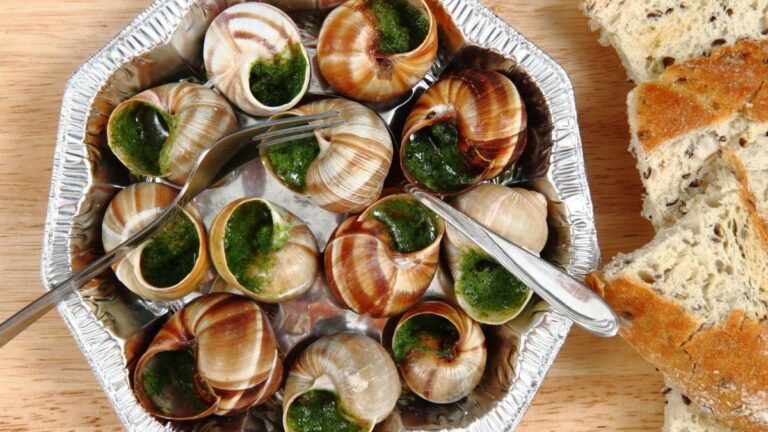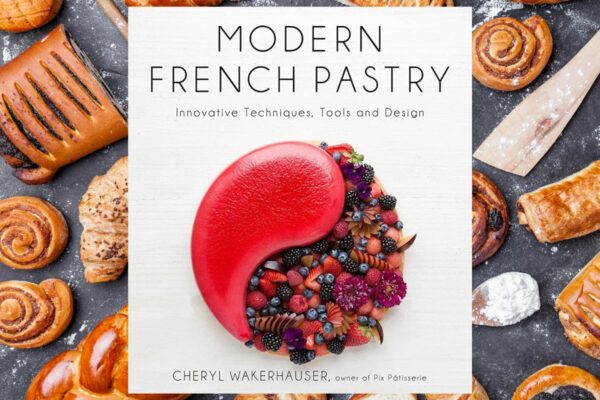To say that French cooking is highly regarded would be an understatement. A more true assessment would be that French cuisine is maybe the most significant in the world. It’s actually included on the UNESCO list of Intangible Cultural Heritage. We can thank the French for numerous gastronomic innovations, including culinary terminology, because their cuisine is so well-known over the world. But, the way that people view food and eating around the world is ultimately where French cuisine has made the most of an impact.
According to The Guardian, French cuisine significantly changed how millions of people thought about eating over the 19th and 20th centuries. The art of cooking developed during this time, and French chefs from the era left behind their legacy.
Nonetheless, despite its illustrious past, French cuisine today still has its detractors. Many experts and patrons believe that newer, braver global cuisines have surpassed this outmoded one as the best in the world. Nonetheless, for the inexperienced cook, French cuisine continues to offer a wealth of tips and techniques that, when learned, can significantly improve their culinary abilities. This article’s list of French culinary hints is by no means comprehensive. Yet mastering these will help you establish a strong culinary foundation. It offers sound advice regardless of the cuisine you are preparing.
Establish your mise en place
Being ready for the cooking process is the major goal of creating a mise en place in French cuisine. Being ready for the cooking process will only enhance the quality of the finished product. In actuality, a mise en place is made up of all the components a cook requires, already prepared and in the exact amounts. All they have to do is add them when it’s time. By focusing on the work at hand, this enables cooks to prevent errors related to unpreparedness. This could include allowing a sauce to burn while searching for an essential ingredient for example.
Even if a person is capable of cooking well without a mise en place, it is nevertheless advised that they create one. T his is done for the very simple reason that it enables chefs to totally immerse themselves in the process. Getting ready to prepare is almost as crucial as cooking. Cooking is a lot more fun when you’re organized. You should appreciate both aspects of it before enjoying the food at the end.
More butter!
Early 20th-century marketing tactics damaged butter’s reputation. They promoted substitute cooking fats as being tastier, cleaner, and healthier. Only now, more than a century later, are attitudes toward butter shifting from dread to respect. The use of butter has long been emphasized in French cooking. Many Americans still like to experiment with alternatives however. The end result is a cuisine that is extremely flavorful. Staples like croissants that are made with lots of butter.
Adding more butter will significantly enhance the flavor and texture of most foods. Anybody who is a chef will tell you that cooking without butter is impossible. It’s one of those ingredients that will enhance your cooking no matter what you do with it. Also, it resonates with everyone because everyone is aware of it. Butter is used in nearly every nation in the world, whether you’re making traditional French cuisine, Italian, or Indian cuisine.
Take time with your sauces
French cuisine is known for its sauces and the five main ones are the most well-known. According to the Auguste Escoffier School of Culinary Arts, these five mother sauces give rise to hundreds of daughter sauces. They continue to keep the world enthralled with French food.
Although sometimes disregarded by the casual cook, sauces are extremely important. It’s an essential component of cooking. The sauce you use on a piece of meat or fish needs to be tied to it somehow.
Particularly when there is meat involved, a well-made sauce may combine the many flavors of a dish while also adding some much-needed wetness. Yet, great sauces are not always easy. In order to get the depth of taste for which they are renowned, time and care must be put into them. In addition to their deliciousness, homemade sauces have the added benefit of possibly being far better for you than store-bought counterparts. Typically they won’t contain as much fat and salt.
Presentation is important
It is not uncommon for an inexperienced cook to spend hours laboring over the ideal evening meal before just tossing it onto a plate. Of course, the food will still taste great, but it can seem a little unappealing. We should keep in mind that eating involves using all five senses. The flavor should be given equal priority to proper presentation.
The theatrical masterpieces of Michel Roux Jr. and René Robuchon are just two examples of French cuisine’s outstanding presentation. Nonetheless, these marvels might be scary for home cooks.
Presentation should be approached similarly to art, cookery, and music. By being careful with how you present, you make for a more memorable experience that is also more enjoyable. It is recommended for beginners to concentrate on color, size, and texture. You’re well on your way to making a platter of visually appealing food if you vary each of these while being aware of empty space.
Technique, technique, technique
All types of cooking require technique. It guarantees the dish’s overall quality as well as its consistency, which is a crucial skill for any cook. Due to the efforts of notable French chefs like the late Paul Bocuse, French cooking is noted for being extremely technique-driven.
Although spending time perfecting fundamental French cooking abilities like knife skills, sauce making, and sauteing can seem like a waste of time given that most cooks can already do a version of them, performing them well will improve your cuisine and offer you a strong foundation for further culinary research.
The basis of all cuisine in the world is traditional French technique. Before attempting to make anything else in the kitchen it is the most crucial thing to understand and master. So many people attempt to create original meals before mastering the fundamentals of cooking.
Use herbs liberally
Herbs are just as important in French cooking as the succulent meats and well prepared vegetables, especially when it comes to flavor. Throughout the culinary process, both fresh and dried herbs are utilized. Tarragon and herbs of Provence rank among the most popular in each subcategory. Most home cooks underuse herbs, frequently sparingly out of concern that they would dominate the dish, similar to how they underuse salt and spices.
The extensive use of herbs in French cuisine is a lesson for all chefs. For instance, a few tarragon leaves can balance out heavy recipes. When it comes to cooking, using lesser-known herbs can be beneficial. Every herb is highly adaptable.
Don’t underestimate stews
Some cuisines have been put on the back burner as cooking techniques have changed. Stews are one of these. Due to their unattractive appearance, they have been disregarded in favor of foods that are more Instagrammable. Yet stews have long played a significant role in French cuisine. The tradition is still alive today thanks to timeless dishes like beef bourguignon.
Preparing a tasty stew doesn’t have to be a difficult task. The taste is largely created by allowing a gentle simmer to do its job over a prolonged period of time.
Keep it simple
While there are many aspects of French cuisine that are controversial, one thing is universally acknowledged as true: French cuisine is all about elegance and simplicity. Young cooks like to add things to the plate, but as they become older they tend to take away the extraneous items and leave the necessary ones. These great dishes are typically quite straightforward. They are made with the most exceptional ingredients and added with extremely clever simplicity.
Whatever the dish, trying to keep your dish simple will enable your chosen ingredients to shine. Also, a reduction in processes will lessen the amount of time spent actually cooking, cleaning up, and making mistakes. These are all compelling arguments for inexperienced cooks to use simplicity in their kitchens. Last but not least, a smaller dish will make other culinary responsibilities, including presentation and even finding high-quality ingredients, much simpler.


